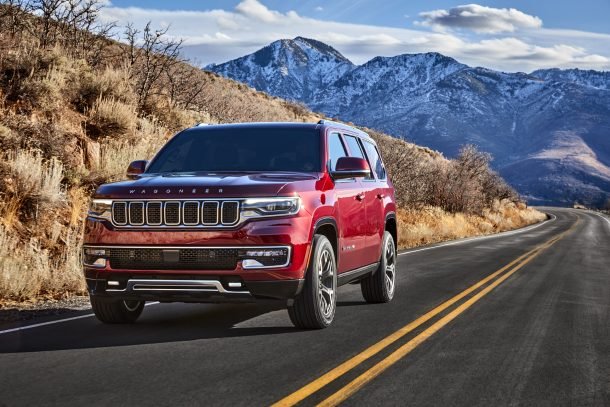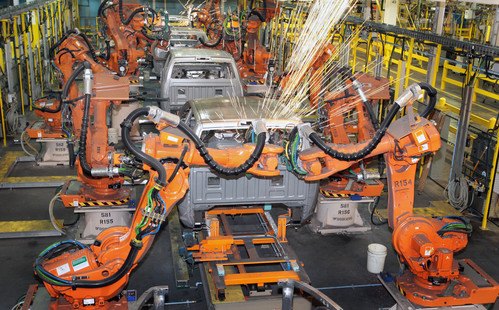#warren
New Ducting Could Stem Stinky Stellantis
Michigan residents living near the Stellantis Warren Truck Assembly Plant have been complaining for some time now about a fetid odor emanating from the facility, a stink that seems to have started after the place was outfitted for production of the new Wagoneer and Grand Wagoneer. Investigations pointed fingers at the facility’s paint shop and the state hit Stellantis with an air quality violation.
Now, the company says it has completed the installation of missing ductwork and has done so a couple of weeks ahead of schedule.
Fiat-Chrysler Earnings Rise Sharply; Ram Production Coming to Sterling Heights
Fiat Chrysler Automobiles CEO Sergio Marchionne has a good morning today, after FCA announced boosted profit and earnings spurred by healthy sales in the U.S. and Europe.
First quarter net profits were up from just above the break-even point a year ago to 451 million euros ($539.4 million), according to The Detroit News, with pre-tax earnings up 88 percent to 1.3 billion euros ($1.6 billion).
General Motors: Don't Read Into Autonomous Vehicle Announcement
General Motors announced last week that it would develop a fleet of autonomous Volts for its Warren, Michigan campus by 2017, despite announcing earlier in the year that its struggling Oshawa, Ontario facility would be a hub for connected vehicles in April.
GM spokesman Dan Flores said the Warren campus was the best fit for the self-driving Volts that will shuttle GM employees.
“We have several global engineering centers in the world and they all play a role in development,” he said. “There shouldn’t be anything read into the autonomous center being based in Warren. It’s the company’s main technical center.”
General Motors Investing $1B Into Warren Tech Center, Adding 2,600 Jobs
General Motors announced Thursday it will invest $1 billion into its Warren Tech Center in Warren, Mich., adding 2,600 jobs through 2018.
General Motors Set To Announce Major Investment For Warren Tech Center
General Motors is expected to announce Thursday its plans for the Warren Tech Center, including its proposed $1-billion investment into the facility.
Analysis: VEBA, The UAW And The Warren Walkout
The 12-person protest that took place at Chrysler’s Warren, Michgan truck plant got little notice in the automotive news cycle, save for a couple of mentions on the usual aggregators. In truth, it’s not the juiciest story to sell in this click-driven wasteland, though these stories tend to raise the most interesting questions. This example highlights an issue that is going to dog the UAW for some time – how will the UAW control their workers when they are also the owners?




















Recent Comments